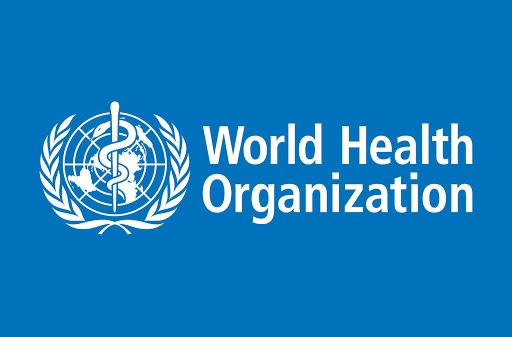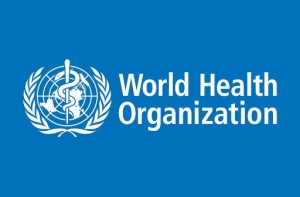For The First Time Ever, the World has Committed to Eliminating Cancer
Globally, a woman dies every two minutes from cervical cancer. There are more than 570,000 new cases and 311,000 deaths from cervical cancer every year, and these numbers are predicted to increase to more 700,000 new cases and 400,000 deaths per year by 2030.[1] Cervical cancer is the second most common cause of cancer death among women in Eastern Europe and Central Asia, where it is associated with enormous personal distress, social disruption, and financial costs for women, their families, and the health systems. The vast majority of these cases and deaths occur among disadvantaged women, and the primary reason for this is the lack of effective cervical cancer prevention programs (HPV vaccination and cervical cancer screening).
Today’s launch of the World Health Organization’s Global Strategy, Cervical Cancer Prevention and Control: Accelerating the Elimination of Cervical Cancer as a Public Health Problem, represents a milestone in the fight against cancer. Caused by infection with the human papilloma virus (HPV), cervical cancer is the 5th most frequently diagnosed cancer among women in Georgia. Despite being preventable, it remains a major health issue in the country, where over 40% of women diagnosed are diagnosed in late stages.
Almost all cases of cervical cancer can be prevented. Well-organized screening programmes can reduce cervical cancer rates by up to 80 per cent or by up to 90 per cent if combined with HPV vaccination of adolescent girls. There is no justification for unorganized screening.
A key reason to prioritize cervical cancer prevention is because it primarily affects women of reproductive age, with the majority of cases occurring between 35 and 45 years of age. This is a time when most women are working, caring for their families, or doing both, so the social impact of cervical cancer is greatly increased because it removes mothers from their families and workers from the economy.
The new strategy emphasizes the need for the integrated implementation of services within communities, ensuring equity in access and financial protection for all women. It outlines the three pillars of cervical cancer elimination – HPV vaccination, cervical screening and treatment – and provides concrete targets to be achieved by the year 2030: 90% HPV vaccination coverage, 70% screening coverage, and 90% access to treatment for cervical pre-cancer and cancer, including access to palliative care. All three pillars must be implemented collectively and at scale to achieve the goal of elimination.
Achieving the 90-70-90 targets offers substantial societal and economic benefits. For every US$1.00 invested in cervical cancer prevention, it is estimated that US$3.20 will be returned to the economy just because more women will remain in the workforce. And when the societal benefits are included in the calculations, every dollar invested will yield a return of US$26.00.[2]
“Taking action to embrace WHO’s global strategy will advance women’s health, mobilize health systems and promote equities, placing Georgia the road to eliminating cervical cancer,” said Dr. AmiranGamkrelidze, Director General of NCDC of Georgia.
The Government of Georgia, together with local stakeholders (Ministry of IDPs from the Occupied Territories, Labour, Health and Social affairs of Georgia, NCDC, National Screening Center, Tbilisi City Hall) and international Partners (WHO, UNFPA, UNICEF, C/Can City Cancer Challenge) have worked collectively on establishing the national mechanisms required for the progressive implementation of organised cervical prevention programmes to reduce the burden of cervical cancer in Georgia, and are committed to taking the next steps in line with the WHO strategy to eliminate cervical cancer. Already we can highlight the following commitments in the areas of prevention, screening, treatment and data management:
- Prevention: Since 2019 the HPV vaccination has been included in the national vaccination program (schedule), for girls 10-12 years of girls. HPV vaccination offers long-term protection against cervical cancer.
- Screening: The national cervical cancer screening program was launched in 2008 in Tbilisi municipality and in 2011 it was extended to throughout the country. Screening and treatment of precancerous lesions can avoid the development of cancer.
- Treatment: Evidence-based guidelines for treatment of cervical cancer are currently being developed. For those who are identified with invasive cancer, timely care and standardized treatment saves lives, while palliative care can greatly reduce pain and suffering.
- Data: Launch of the National Cancer Screening Registry to improve screening participation and data management. A robust monitoring system, including population-based cancer registries, is essential to keep track of the progress and to make course corrections.
“Cervical cancer is one cancer the world can actually eliminate: it’s time to do it. We have the tools, now let’s make Georgia a leader in the region and end the needless suffering from a cancer that is both preventable and curable,” said Dr. Silviu Domente, Head of WHO Country Office, Georgia
Georgia still has considerable work to do towards achieving the elimination threshold of four annual cases of cervical cancer per 100.000 women; the current incidence of cervical cancer is 16.7/100,000 women per year. But today we are also pleased to announce the establishment of a technical working group to develop an effective national cervical cancer elimination strategy and implementation plan and to ensure that women’s needs and perspectives are well represented in Georgia.
“It is essential for all women in Georgia to be knowledgeable about their health and about cervical cancer, to be informed about risk factors, signs and symptoms and where to go for help. It is equally important for our communities to support girls and women in accessing the prevention and care they need to live a healthy life,” said Ms. Lela Bakradze, Head of the UNFPA Georgia Country Office.
This movement is intended to reflect the hearts and needs of all people affected by cervical cancer, and will be more powerful when led by and owned by communities and individuals themselves. In other words, the success of the Global Strategy is dependent on all of our involvement! We invite all stakeholders to join us in building a partnership for elimination in Georgia. To mark this global launch, the Tbilisi TV Tower has been lit in teal today in solidarity, as are many iconic monuments and buildings around the world.
For more information:
The Launch of the Global Strategy to Accelerate the Elimination of Cervical Cancer
Global Strategy to Accelerate the Elimination of Cervical Cancer
National Centers for Disease Control












